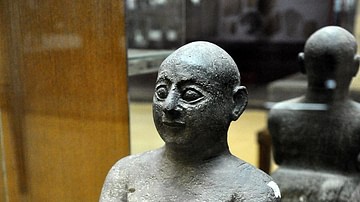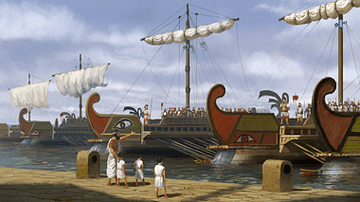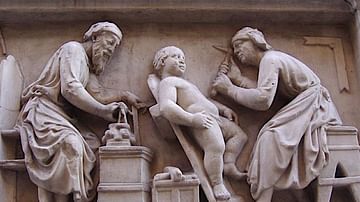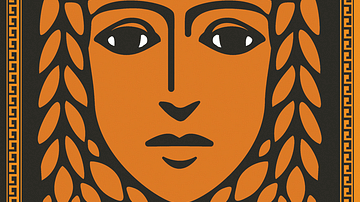Search
Did you mean: Tara?
Search Results

Article
Legacy of the Ancient Romans
The legacy of the ancient Romans – from both the time of the Roman Republic (509-27 BCE) and the time of the Roman Empire (27 BCE - 476 CE) – exerted a significant influence on succeeding cultures and is still felt around the world in the...

Article
Buddhism in Ancient Japan
Buddhism was introduced to ancient Japan via Korea in the 6th century CE with various sects following in subsequent centuries via China. It was readily accepted by both the elite and ordinary populace because it confirmed the political and...

Article
Scribes in Ancient Mesopotamia
Scribes in ancient Mesopotamia were highly educated individuals trained in writing and reading on diverse subjects. Initially, their purpose was in recording financial transactions through trade, but in time, they were integral to every aspect...

Article
Mesopotamian Education
Mesopotamian education was invented by the Sumerians following the creation of writing c. 3500 BCE. The earliest schools were attached to temples but later established in separate buildings in which the scribes of ancient Mesopotamia learned...

Article
Travel in the Ancient Greek World
Travel opportunities within the ancient Greek world largely depended on status and profession; nevertheless, a significant proportion of the population could, and did, travel across the Mediterranean to sell their wares, skills, go on religious...

Article
Upanishads: Summary & Commentary
The Upanishads are among the best-known philosophical-religious works in the world and also among the oldest as the earliest texts are thought to have been composed between 800-500 BCE. These works are philosophical dialogues relating to...

Article
Life on a Colonial Sugar Plantation
Raising sugar cane could be a very profitable business, but producing refined sugar was a highly labour-intensive process. For this reason, European colonial settlers in Africa and the Americas used slaves on their plantations, almost all...

Article
The Women of Athena's Cult
In ancient Athens, women had no life outside the home unless they were prostitutes or were engaged in religious activities such as festivals. Every Greek deity in every city-state had their own cult (sect) but the cult of Athena offered women...

Article
Life in a Renaissance Artist's Workshop
The majority of great Renaissance works of art were produced in large and busy workshops run by a successful master artist and his team of assistants and apprentices. Here, too, more mundane art was produced in larger quantities to meet the...

Interview
Interview: Circe by Madeline Miller
Award-winning writer Madeline Miller's newest novel, Circe, tells the story of a sorceress who was once the onetime lover of the wily Odysseus. The heart of the novel is, nonetheless, that of a woman's yearning for self-discovery, purpose...